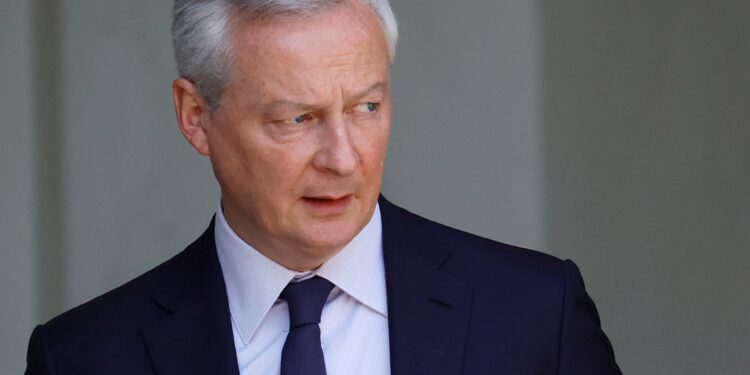French Minister of Economy and Finance Bruno Le Maire warned today of the risk of a “financial crisis” and “economic recession” posed by the “new political reality” in France, resulting from legislative elections that did not produce a majority.
Bruno Le Maire, who has held this ministerial portfolio since 2017 when Emmanuel Macron came to power, said on the X platform that “implementing the program of the New Popular Front” which won Sunday’s elections “would eliminate the results of the policy we have implemented in the last seven years.”
Unknown majority
After the surprise results of the legislative elections, which resulted in a National Assembly divided into three blocs, the French political class will begin deliberations on Monday to build an unknown majority and appoint a prime minister.
The French left confirmed its readiness to rule the country after it topped the results of decisive legislative elections on Sunday, but without achieving an absolute majority, and it begins difficult internal discussions to appoint a prime minister.
“We should be able to present a candidate this week” for the post of prime minister, Olivier Faure, head of the Socialist Party, part of the New Popular Front that was formed to run in the second round of the legislative elections held yesterday, said in a radio statement on Monday.
In the camp of environmentalists, members of this leftist front as well, their leader Marine Tondolier said in a radio statement that French President Emmanuel Macron “must today call” on the left to propose a name for a person to assume the presidency of the government.
On Monday, Macron asked Prime Minister Gabriel Attal, who came to submit his resignation, to remain in his position “for the time being to ensure the stability of the country,” the presidential palace announced.
New Program
All the formations of the leftist coalition confirmed last night that the program of the next government must be based on the project of the new popular front.
This program calls for the cancellation of the pension reform and the immigration law, the reform of unemployment benefits, as well as measures on purchasing power such as setting a “net minimum wage of 1,600,” as the Socialists assert.
France Insoumise party leader Jean-Luc Mélenchon promised that the minimum wage increase would be done “by decree,” stressing that “we will not accept any pretext, trick or compromise.”
He also refused to “enter into negotiations” with the presidential Ennahda party.



